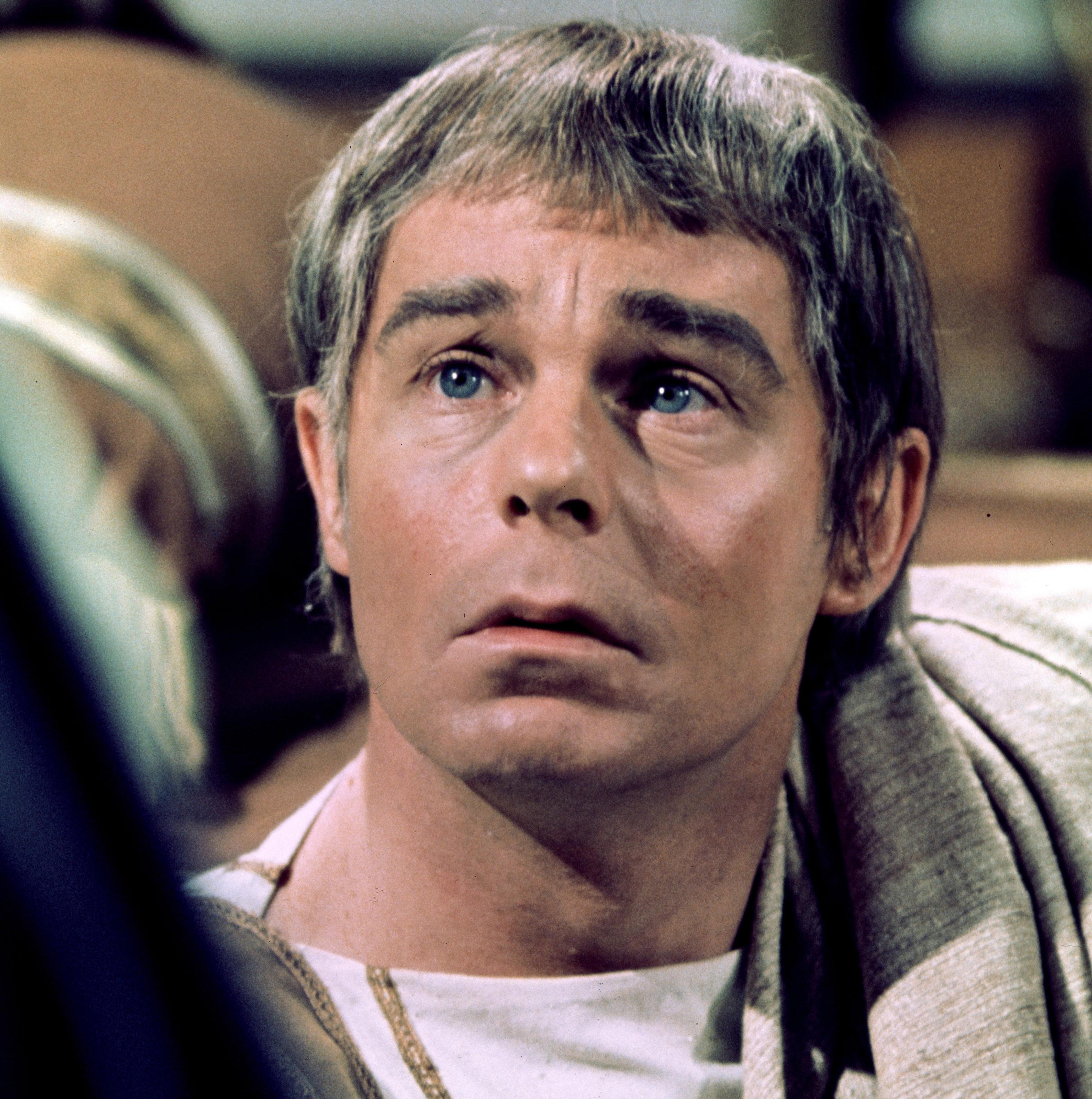Derek Jacobi: ‘They always want you to say something political. I prefer to keep my mouth shut’
Though the esteemed actor has been buoyed by good luck in his career, you won’t find the 82-year-old resting on his laurels. As he stars in a new episode of Inside No 9, Jacobi talks to Ed Cumming about hobbies, the ‘madness’ of method acting and whether LGBTQ roles should be given to straight actors


Your support helps us to tell the story
From reproductive rights to climate change to Big Tech, The Independent is on the ground when the story is developing. Whether it's investigating the financials of Elon Musk's pro-Trump PAC or producing our latest documentary, 'The A Word', which shines a light on the American women fighting for reproductive rights, we know how important it is to parse out the facts from the messaging.
At such a critical moment in US history, we need reporters on the ground. Your donation allows us to keep sending journalists to speak to both sides of the story.
The Independent is trusted by Americans across the entire political spectrum. And unlike many other quality news outlets, we choose not to lock Americans out of our reporting and analysis with paywalls. We believe quality journalism should be available to everyone, paid for by those who can afford it.
Your support makes all the difference.I was dreading you asking me what I think of Dominic Cummings,” says Sir Derek Jacobi. The prime minister’s former special adviser is in the news the day we speak, dishing the dirt on his former employers. It’s true Jacobi, 82, has spent plenty of time playing wizened leaders and shrewd advisers, from the emperor Claudius in I, Claudius to the senator Gracchus in Gladiator to the Duke of Windsor in The Crown via endless Hamlets and Lears and The Master in Doctor Who. But it hadn’t occurred to me to seek his opinion on the real-world political situation. Jacobi has never been outspoken. For all his Stakhanovite workload on screen and stage, he has been a reserved figure off it: famous but somewhat mysterious. We can talk about Dominic Cummings if he likes, I say. “No!” he replies, good humoured but emphatic.
Although he would never be so insensitive as to admit it, it sounds as though Jacobi has had a wonderful pandemic. In the autumn of his career, when others might content themselves with the odd valedictory performance, Jacobi appears to be speeding up. In the past 18 months there have been theatrical projects, film and TV pieces, interviews. Last summer, locked down at his house in France, he recorded the audiobook for Sir Captain Tom Moore’s memoir from a studio Jacobi’s husband, Richard, set up in the spare room. He read Shakespeare’s sonnets for the BBC’s Culture in Quarantine series. More recently he recorded a performance of Romeo & Juliet with the help of a green screen sent to his home.
His latest role is a guest appearance on Steve Pemberton and Reece Shearsmith’s BBC experimental horror-comedy, Inside No 9. Jacobi, confined to a bed for most of the half-hour, plays a truculent criminal defence barrister, anxious about his approaching death. It’s a darkly comic turn, peppered with explosive cursing that Jacobi visibly enjoys. “I thought it was beautifully written and very funny,” he says. “Getting back into the studio was like getting back into a warm overcoat.”
“It’s all a bit strange, but I lived through the war,” he says. “I’m a war baby. So this is nothing.” There’s been no banana bread. “I can’t boil water. And I don’t have time for a hobby. I work a lot. At my age, that’s so lucky.” He has seen friends of a similar vintage, without a meaningful hobby or the sense of purpose afforded by work, start to slow down. “You have to make sure the body’s ticking over. If retirement means not doing anything except read a book, that’s a bit worrying.”
He talks a lot about luck and gratitude. The only child of a tobacconist and a draper’s secretary, he was born in 1938 and grew up in Leytonstone. After he won a scholarship to read history at Cambridge University, his early career was dominated by two pieces of good fortune. Three years after Jacobi graduated, Sir Laurence Olivier spotted him working in rep. On 22 October 1963, Jacobi celebrated his 25th birthday by appearing in the first performance at the National, as Laertes opposite Peter O’Toole’s Hamlet. A decent birthday. “It all came together that night,” he says. Then 13 years later, after steady theatre work, he was cast in I, Claudius, the BBC’s adaptation of Robert Graves’s 1934 novel about the titular Roman emperor. “[Claudius] changed everything for me,” he says. “I was blessed but I wasn’t known. Then Claudius came along and I was in people’s sitting rooms twice a week for six months.” Hollywood followed. It would be harder for something like I, Claudius to find an audience today, he says, with so much more choice available. “It was Roman history, it wasn’t Coronation Street,” he says. “We didn’t know if it was going to be a success.”
We speak soon after another octogenarian, Anthony Hopkins, has become the oldest man to win the Best Actor Oscar for his performance as a dementia sufferer in The Father. “Good on him!” Jacobi says. “I’ve always said Tony is the one actor from my generation whom I revere. He’s the best. I once took over from him playing Andre on a production of Three Sisters [Chekov’s famed 1900 play]. I couldn’t get anywhere near him.” He was offered the script of The Father before its original stage production, but passed. “I couldn’t understand it. It went on to win the Olivier for Ken Cranham and the Oscar for Tony. Worst decision I ever made.” It’s reassuring, I say, that after a career of more than 60 years he still can’t pick them. “I’ve always doubted my own judgement,” he says. “It’s always dogged me. I can find many people and become many things but with some parts I can’t see my way in. I don’t want to make a fool of myself and come a cropper.”

Nor is he tempted by the prospect of an Oscar. “Awards are lovely, and they go in the cabinet with the glass door so everyone can see them. But it’s not about that. They always want you to say something political or original. I prefer to keep my mouth shut. I’ve seen the terrible things it does to those who open their mouths too wide. I’ve never been a political animal. Most actors are. I’ve never marched for anything.”
Even on gay rights, he has been quieter than some of his contemporaries. He was surprised to see himself namechecked in Russell T Davies’s Aids drama, It’s a Sin, a series in which his actor husband Richard had a minor role. “Ian McKellen called me up and said, ‘I don’t know which is more prestigious, to be in something or namechecked in something.’” Around the time of the drama’s airdate, Davies said he thought gay roles ought to be played by gay actors. Jacobi disagrees. “Absolutely not,” he says. “I don’t think you have to be gay to be gay.”

You get the sense that Jacobi’s ability to compartmentalise has been one of the secrets of his longevity. He has not let himself be blown off course by activism or controversy. Unlike many younger actors, he has no interest in method. “That way madness lies,” he says. “There are very good actors who prefer to live the role and take the role home with them. I admire that but I can’t do that. I have to have my own life as well. It sounds hifalutin, but the art of acting is to turn it off, and not to have to adapt your entire life to the part you’re playing.”
At a time when the line between private and professional is being eroded by social media, especially for those in the public eye, Jacobi is an old-fashioned figure. There’s Jacobi the actor: generous, spry, happy to chat about the theatre and the work and the new Peloton gathering dust in his house. Then there’s Jacobi the private man, who will remain enigmatic, at least as long as there’s so much work to be done.
Jacobi’s episode of Inside No 9 airs on BBC Two at 9.30pm on Monday 7 June



Join our commenting forum
Join thought-provoking conversations, follow other Independent readers and see their replies
Comments